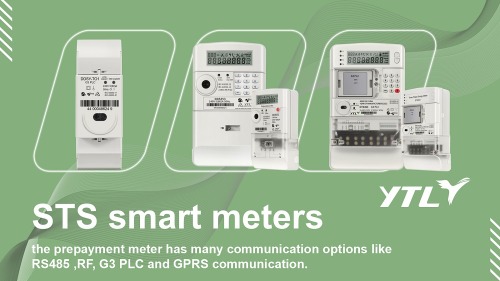 Single phase kWh meter, which is a fundamental component of our modern electrical systems. It plays a vital role in accurately measuring and monitoring the electricity consumption of a single phase circuit. Understanding the principles and functionality of this device is crucial for electrical engineers and professionals working in the energy sector.
Single phase kWh meter, which is a fundamental component of our modern electrical systems. It plays a vital role in accurately measuring and monitoring the electricity consumption of a single phase circuit. Understanding the principles and functionality of this device is crucial for electrical engineers and professionals working in the energy sector.
The single phase kWh meter operates based on the principles of electromagnetic induction. It consists of several key components, such as current transformers, voltage transformers. The current transformer is responsible for measuring the current flowing through the circuit, while the voltage transformer measures the voltage. These measurements are then used to calculate the amount of energy consumed.
One of the significant advantages of a single phase kWh meter is its accuracy. It can precisely measure the amount of electricity consumed, allowing utility companies to calculate bills accurately. This is especially important in an era where energy conservation and efficiency are crucial. By accurately measuring electricity consumption, individuals and organizations can identify areas of high consumption and take steps to reduce energy waste.
Another advantage of the single phase kWh meter is its simplicity. It is a compact and straightforward device, making it easy to install and use. Its design allows for seamless integration into electrical systems without causing disruption. Additionally, the device is durable and requires minimal maintenance, ensuring its longevity and reliability. The single phase kWh meter also supports the implementation of various energy pricing strategies. For example, time-of-use (TOU) pricing charges different rates based on the time of day or season. This encourages consumers to shift their energy usage to off-peak hours, reducing the strain on the electrical grid during peak times. The single phase kWh meter enables accurate tracking of usage during specific time periods, facilitating the implementation of TOU pricing.
The single phase kWh meter also supports the implementation of various energy pricing strategies. For example, time-of-use (TOU) pricing charges different rates based on the time of day or season. This encourages consumers to shift their energy usage to off-peak hours, reducing the strain on the electrical grid during peak times. The single phase kWh meter enables accurate tracking of usage during specific time periods, facilitating the implementation of TOU pricing.
Moreover, the single phase kWh meter supports the concept of net metering. Net metering allows individuals or organizations with renewable energy sources, such as solar panels, to offset their electricity bills. Excess energy generated by these renewable sources can be fed back into the grid, and a single phase kWh meter accurately measures the amount of energy supplied.
The implementation of the single phase kWh meter is not without challenges. One of the significant concerns is meter tampering or tamper. This occurs when individuals attempt to manipulate the meter readings illegally, resulting in lower energy bills. Utility companies have implemented various measures to combat these issues, including the use of tamper-resistant meters and regular audits.
In conclusion, the single phase kWh meter is a vital tool in our electrical systems. Its accurate measurement capabilities, simplicity, and support for energy pricing strategies make it indispensable. With the growing importance of energy efficiency and conservation, the single phase kWh meter facilitates the monitoring and management of electricity consumption. It remains an essential component for electrical engineers and professionals in the energy sector, enabling efficient energy usage and billing.

 English
English 中文简体
中文简体

.jpg?imageView2/2/w/500/h/500/format/png/q/100)

.jpg?imageView2/2/w/500/h/500/format/png/q/100)

.jpg?imageView2/2/w/500/h/500/format/png/q/100)








